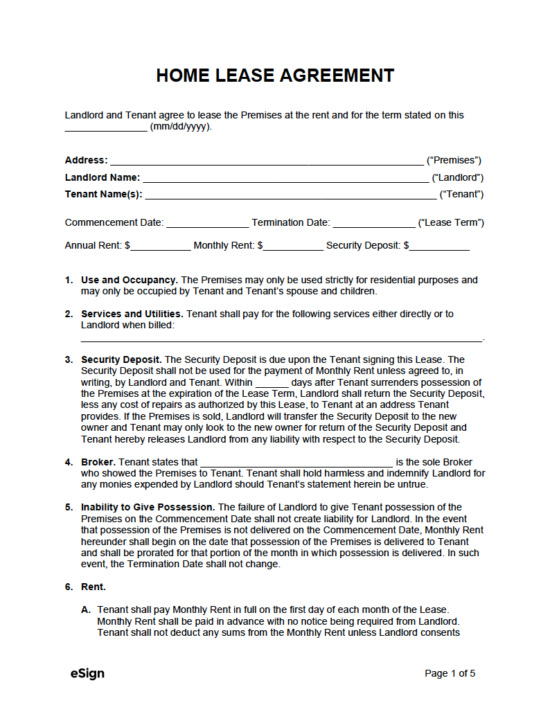

A home rental lease agreement is a contract used by homeowners for renting out their single-family or duplex property. Once signed by all parties, the renter (tenant) is required to make payments on a monthly basis to the landlord until the agreement’s end. The typical lease length for a home is one (1) year.
Short-term / Vacation lease agreement – For renting out a home or room for a short, fixed lease term.
While a landlord can’t prevent issues from arising after a tenant moves in, their level of preparedness can make the difference between a minor inconvenience and a costly, time-consuming issue. Each state’s landlord-tenant laws cover the rights of both the landlord and tenant in depth, and go over exactly what rights both parties have in handling problems.
Have a leaky roof? A broken appliance? Unless the rent is very cheap or demand in general is uncommonly high, the homeowner will find it difficult to get the place rented. Taking the time to get everything in working order will not only improve the appeal of the rental, but it will also make the homeowner’s time as a landlord significantly easier due to reduced repair requests from tenants.
Equally important is taking high-quality, diverse pictures of the property. Every major room, feature, and appliance should be included in a photograph in the rental listing. Additionally, including pictures of the exterior, the street view, the yard, and other scenic pictures is highly recommended.
Even if the homeowner spruced up the property, took great photos, and ensured it’s ready for a new tenant, if it’s priced too high it’ll sit on the market indefinitely. To set a rent price point for the home, the landlord should look at what similar home rentals go for in the area. Additionally, the price of the rental will depend on the utilities the tenant will be required to pay (electricity, water, heat, cable, etc.).
Not only are many of the rental sites free to use, they allow landlords to broadcast their available rentals to a massive number of renters. Popular options include:
Although posting listings on Zillow may cost a homeowner $9.99/week (after posting their first listing), it is almost always worth the extra visibility the homeowner receives. And as stated before, a listing is only as good as the pictures – if a homeowner is uncomfortable taking their own high-quality pictures, recruiting the help of a real estate photographer is recommended.